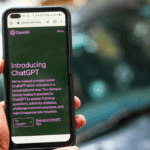We hope your summer is going well and that you’re finding a perfect balance between relaxation and productivity. One way you can maximize your downtime is to create and implement a budgeting plan.
During the summer it can be especially easy to swipe a card, withdrawal cash or Venmo a friend for activities. If there’s not a budgeting plan in place, your balance could hit zero or become withdrawn before you know it. We’re here to help guide you to make financially informed decisions so that you can continue to join in the summer fun without worry!
First, track your income. Start by listing all sources of income (allowance, part-time job, side hustle, etc.)
The next step is to write it out all out. Writing out your costs for wants, needs, savings, and debt repayment can make it simple to track your expenses, especially because all expenses can fit into two categories: fixed and variable expenses.
A Fixed Expense is a recurring cost of which the amount never changes. You will pay these expenses regularly (weekly, monthly, quarterly, or yearly). Because they cost the same every month, fixed expenses are easy to budget!
A Variable Expense is a potential cost that differs depending on your personal spending decisions. Unlike fixed expenses, variable expenses can fluctuate each month; this can make budgeting a little tricky.
Variable expenses are the most tempting things to spend our hard-earned money on, such as take-out, traveling, entertainment, etc. These things catch our attention, but more often than not, they aren’t worth the money. Impulse buys, and other unnecessary purchases can hinder your financial progress.
Here are some practical tips for students to avoid unnecessary purchases and spending:
Create a Budget and Stick to It
- Track Your Spending: Use a budgeting app or a simple spreadsheet to monitor your expenses.
- Set Spending Limits: Allocate specific amounts for different categories, such as food, entertainment, and personal items.
Avoid Temptation
- Limit Exposure: Unsubscribe from marketing emails and avoid browsing online stores without a specific need.
- Stay Away from Sales: Just because something is on sale doesn’t mean you need it. Avoid sales unless you need a specific item.
Use Cash Instead of Cards
- Cash-Only Budget: Withdraw a set amount of cash each week for discretionary spending and stop when it’s gone.
- Visualize Spending: Using cash makes spending more tangible and can help you stay within your limits.
Delay Gratification
- Wait Before Buying: Implement a waiting period (24 hours or a week) before making non-essential purchases.
- Reassess the Need: Often, the urge to buy will diminish after some time, helping you avoid impulse buys.
Look for Student Discounts
- Take Advantage of Discounts: Many stores, restaurants, and services offer student discounts. Always carry your student ID and ask if discounts are available.
- Use Coupons and Cashback Offers: Make use of coupons, cashback apps, and discount codes to save on everyday purchases.
Embracing budgeting as a part of your routine can lead to greater peace of mind and a more secure financial future.
The Red Kite Team



